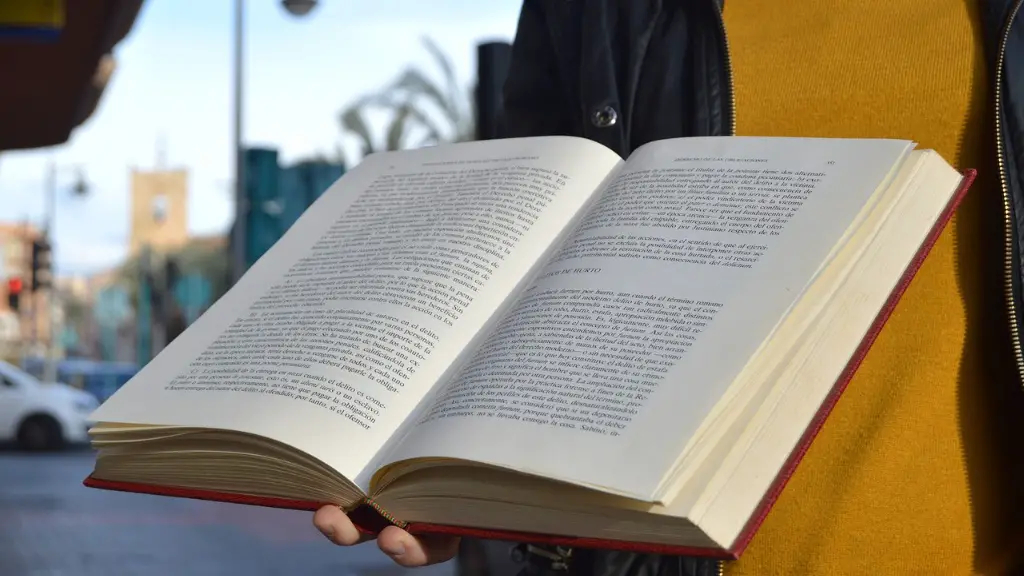Early Life
Walt Whitman is one of America’s most beloved poets. Born in 1819 in the small town of West Hills, New York, he grew up in humble beginnings. His father, Walter Whitman, Sr., was a laborer, carpenter and house builder, while his mother, Louisa Van Velsor Whitman, was a housewife. Walt had eight siblings, including a brother, Jeff, who was an important influence on him throughout his life. As a child, Whitman received an education from a dame school and a local schoolmaster. He later went on to work as an office boy for an attorney and as a typesetter for various newspapers.
Growing up in New York
Walt Whitman grew up in the bustling city of New York in the early 19th century. He witnessed the growth of the nation’s most iconic city, which was the center of America’s literary, artistic and political life. He explored the city’s various social classes, interacting with the people in the streets and soaking up the subtle beauty of the city that he wrote about in poetry. His experience in New York shaped and molded his writing, giving him a unique perspective on life and the world.
Influence of the Transcendentalists
During his adolescent years, Walt Whitman was heavily influenced by the Transcendental movement, an American philosophical and literary tradition which had its roots in Germany. He was affected by the movement’s notion of the individual’s inherent worth regardless of social position and faith in progress. He also encountered the Transcendentalists’ belief in the power of the individual to achieve personal inspiration and self-expression. This concept greatly influenced his writing, and he developed a style of writing that incorporated simple language and everyday imagery.
Influence of Religion
During these formative years, Walt Whitman was also exposed to religion, particularly the Quaker religion. This faith would stay with him for the rest of his life, and it strongly influenced his writing. He wrote about the interconnectedness of all humanity, and his work often celebrated the power of love, brotherhood and nature. Although he never embraced any organized religion, his work was deeply spiritual and filled with reverence for the natural world.
Influence of Other Writers
Walt Whitman also encountered a variety of other writers during his childhood. He read the works of European Romantics, such as Wordsworth and Coleridge, and the American writers, such as Emerson, Thoreau and Poe. These writers all had a profound influence on his writing, introducing him to a world of literature that he had never seen before. Whitman was particularly influenced by Emerson, who wrote about the power of individual creativity and personal expression.
Leaves of Grass
In 1855, Walt Whitman published his masterpiece, Leaves of Grass, which was an instant success. The book was revolutionary for its time, and it quickly made Whitman into a celebrity. His poetry, which was filled with vivid imagery, defied traditional conventions and sparked intense debates. Leaves of Grass was the book that put Whitman on the map, and it changed the course of American literature forever.
Conclusion of Whitman’s childhood
Walt Whitman’s childhood shaped the man and writer he would become. He was exposed to a variety of influences—from religion and philosophy to literature and art. This depth of knowledge and experience gave him a unique outlook on life, which helped him to craft work that spoke powerfully to the spirit of a nation. The imprint of his childhood in New York can be felt in his works, in which the bustling city became an emblematic source of inspiration and beauty.
Legacy and Recognition
In the decades since his death, Walt Whitman has become a recognized figure in American literature. His work has been translated into many languages, and his influence can be seen in the writings of modern authors. Numerous institutions, organizations and events have been established in his name, as have several parks and monuments. Countless articles, books and essays have discussed and analyzed his work, cementing his legacy as one of the most influential poets of all time.
Importance of his work
Walt Whitman’s work is an essential piece of American literature, offering refreshing insight into some of the most important issues of his time. His writing touched on issues such as slavery and the Civil War, as well as human rights, modernization and freedom. Through his poetry, he provided a platform for people to express their ideas and reflect on life in a way that had never been done before. He pioneered a style of writing that would inspire countless generations to come.
Controversy associated with Whitman’s work
Like many great works of literature, Walt Whitman’s work also attracted controversy. His free-spirited, experimental work often shocked the sensibilities of his contemporaries, who found his topics and language distasteful. From accusations of being too revolutionary in his views to being labeled as immoral, Whitman’s work was not always well received. Despite the negative criticism, he remained passionate about his writing and eventually gained a loyal following.
Whitman’s Popularity Today
Today, Walt Whitman’s work is more popular than ever. His unique voice and style of writing continues to inspire writers, poets and scholars across the world. Numerous collections, books and studies on his work have been released in recent years, introducing him to a new generation of readers. He is constantly revered as one of the most important figures in 19th century American literature, and his work is as relevant today as ever.


